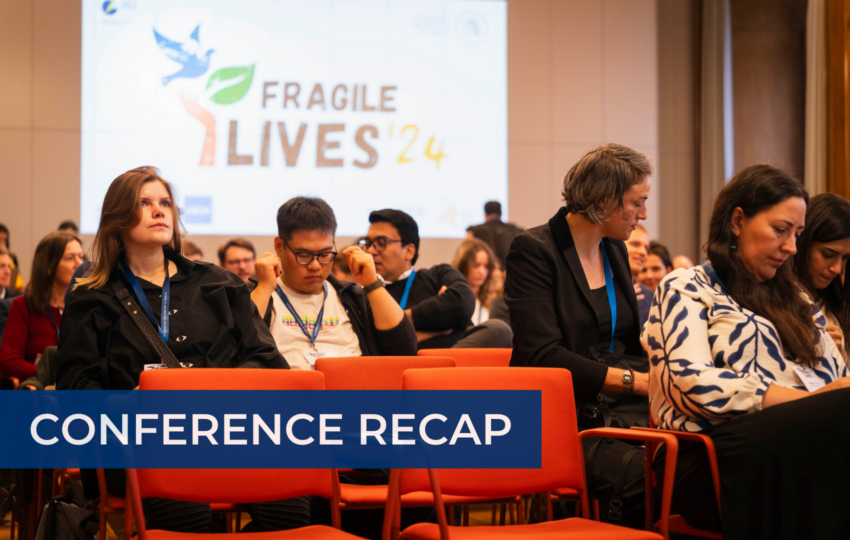Fragile Lives 2024 was the first edition of a new annual expert conference aimed at discussing the role of scientific evidence in shaping policies for fragile and conflict-affected areas.
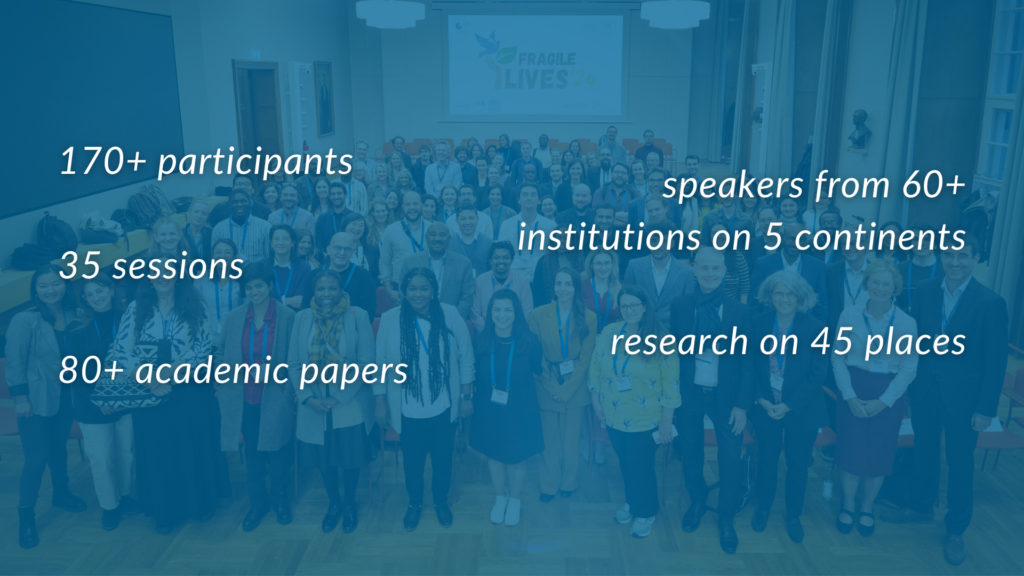
Throughout the event, held on 1 and 2 October 2024 at Humboldt University of Berlin, representatives from academia, policy, and practice explored how poly-crises, where violent conflict, humanitarian emergencies and/or climate crises interact, shape individuals, institutions, and interventions at the micro-level. More than 170 participants stemmed from all over the world, with speakers coming to Berlin from more than 60 different institutions across five continents.
Tilman Brück opened the conference alongside a lineup of distinguished speakers representing academia and the public sector, each of which highlighted the importance of the conference topics for the present day.
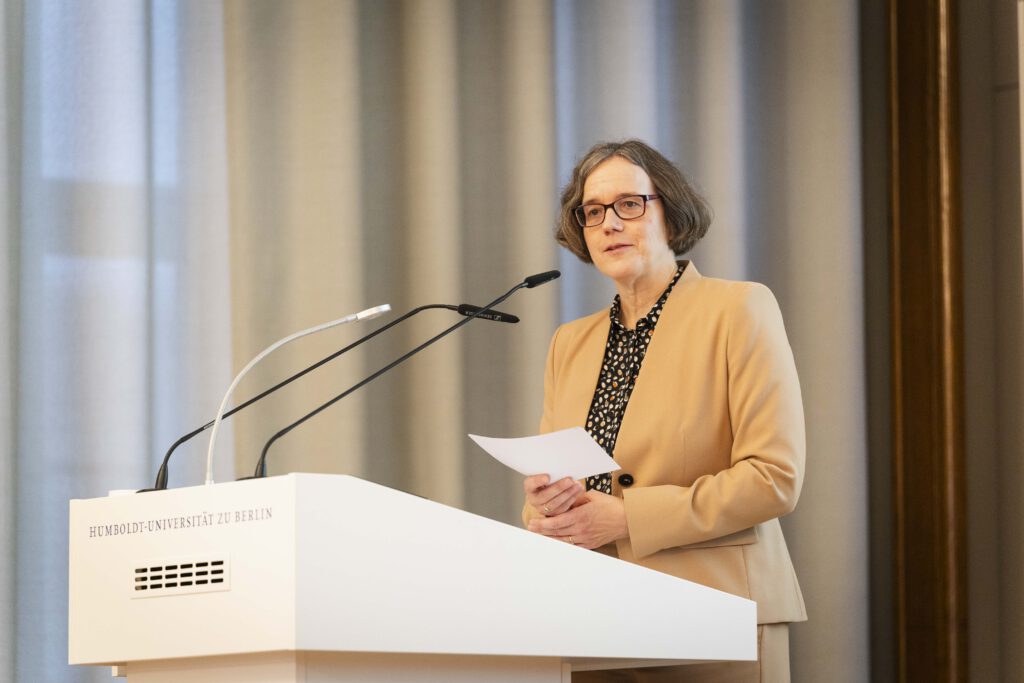
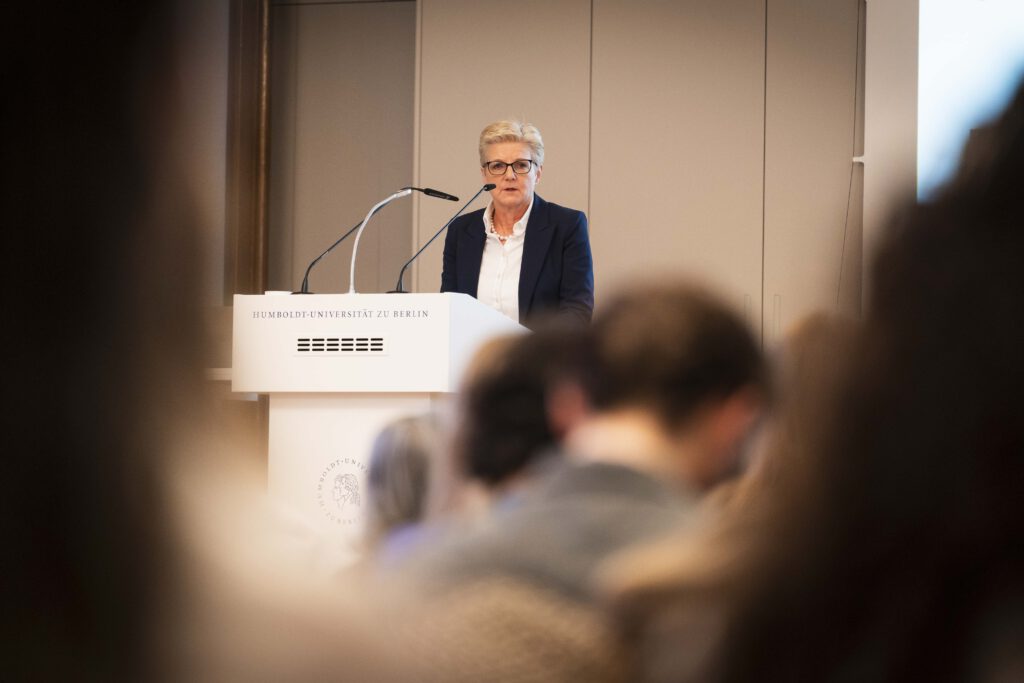
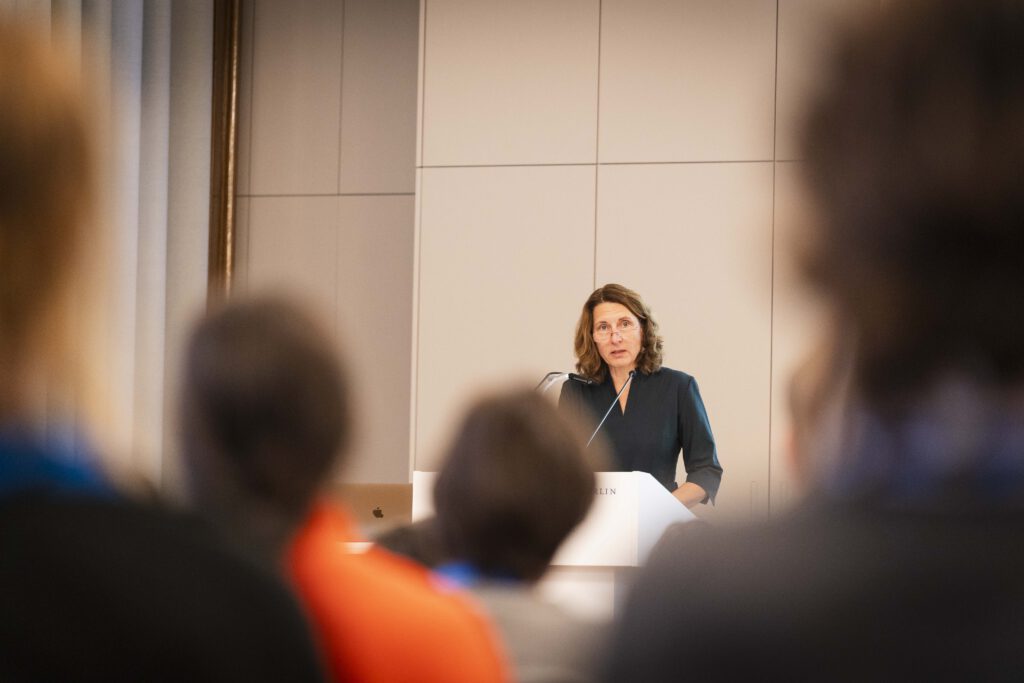
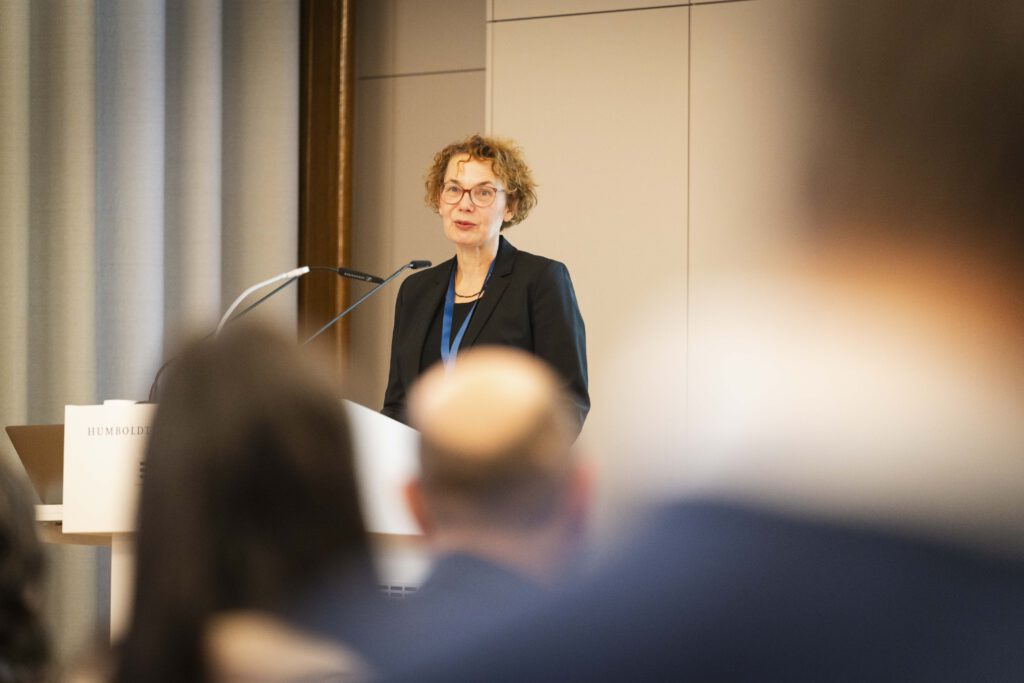
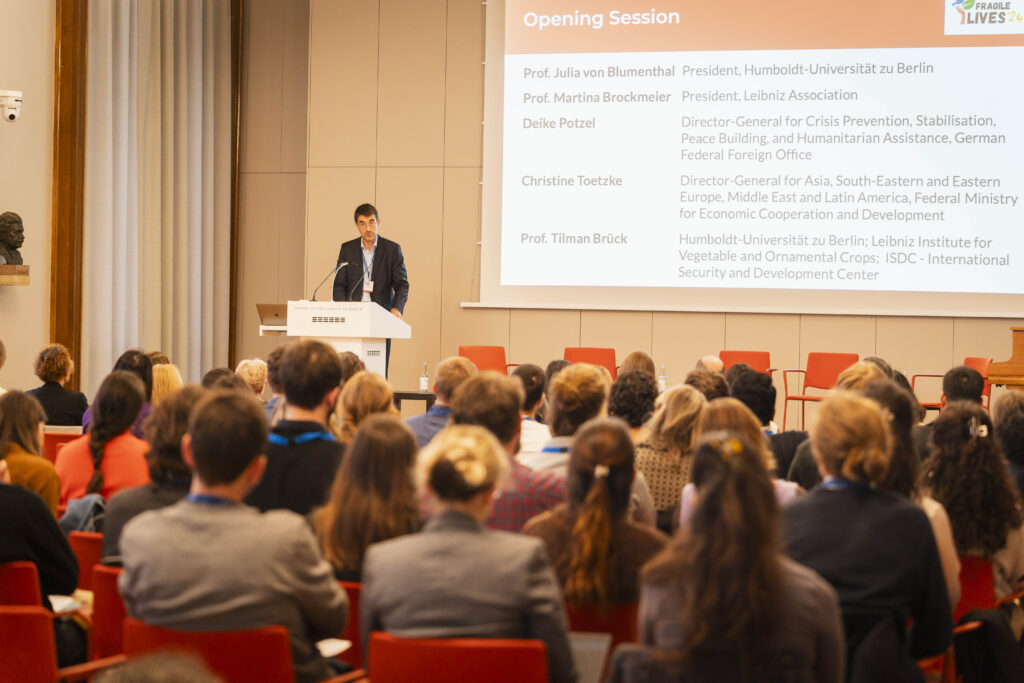
- Julia von Blumenthal, President of Humboldt University of Berlin, emphasized the university’s role in advancing global discourse on peace and development.
- Martina Brockmeier, President of the Leibniz Association, underscored the value of interdisciplinary collaboration in addressing global challenges.
- Deike Potzel, Director General for Crisis Prevention, Stabilisation, Peace Building, and Humanitarian Assistance of the German Federal Foreign Office discussed Germany’s commitment to humanitarian efforts in crisis prevention and peacebuilding.
- Christine Toetzke, Director-General for Asia, South-Eastern and Eastern Europe, Middle East and Latin America from the Ministry for Economic Cooperation and Development highlighted the international dimensions of development cooperation, setting an inclusive tone for the discussions ahead.
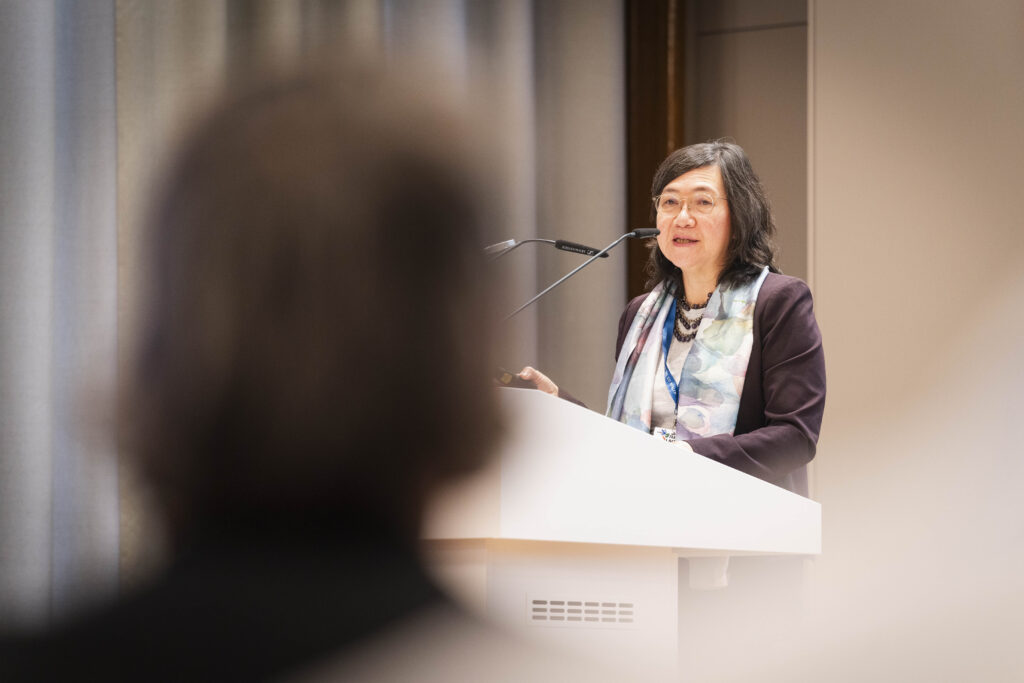
Agnes Quisumbing (Senior Research Fellow, International Food Policy Research Institute) gave the first keynote address. Agnes spoke on Gender, Assets, Empowerment, and Resilience, offering evidence-based insights into how gender and asset ownership foster resilience in fragile communities.
See Agnes’ full keynote or her presentation slides.
The second keynote of the conference was held by Ibrahim Elbadawi (Managing Director, Economic Research Forum). Ibrahim focused on the socioeconomic impacts of the Arab Spring, highlighting the diverse recovery trajectories in the MENA region and offering valuable lessons for future peacebuilding efforts.
See Ibrahim’s full keynote or his presentation slides.
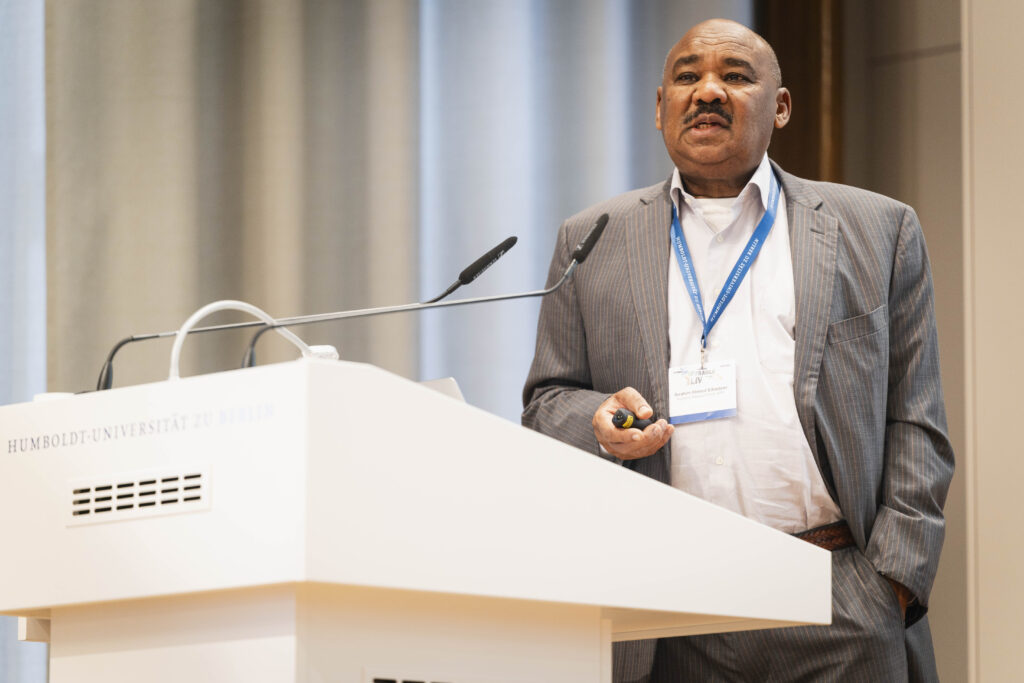
Conference Sessions
Overall, the conference was structured around three key themes: Lives and Livelihoods, Achieving Zero Hunger, and Peace and Prosperity. 35 sessions covered a broad spectrum of studies, from the effects of conflict, humanitarian aid, or media on communities, to less explored topics like mental health in fragile settings. They also examined a wide range of geographies, highlighting research on 45 distinct countries and regions.
Throughout the conference, participants then had the opportunity to choose from a range of five to six sessions at a time, allowing them to focus on their specific areas of interest.
As well as being able to present and collect feedback on their own work, participants at Fragile Lives were able to attend and engage in presentations beyond their own disciplines, bringing policy and academic communities together in one space. Many of the sessions were hosted by the annual workshops of three different research communities: The Households in Conflict Network (HiCN), the Leibniz Environment and Development Symposium (LEADS), and the Methods Working Group of the German Association for Peace and Conflict Studies (AFK Methods). Together, these workshops hosted more than 80 presentations of current academic research. Bringing together these communities fostered evidence-based discussions, many of which were based on rigorous evaluations of interventions, thereby offering practical solutions for topics including resilience, climate adaptation, and peacebuilding.
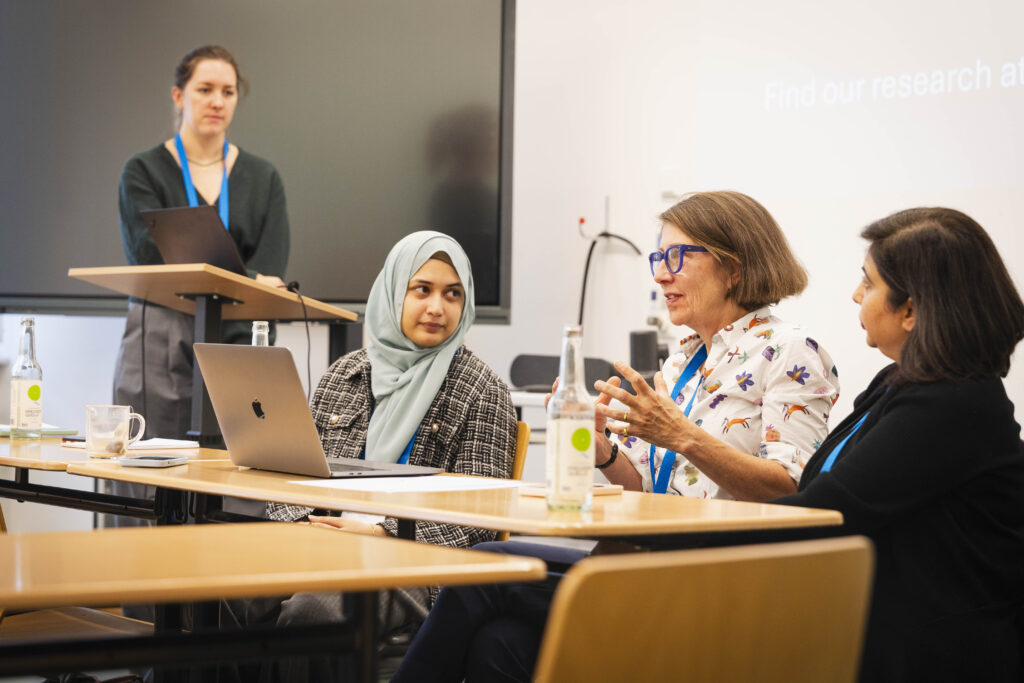
Beyond the academic workshops, the conference also featured a range of policy-oriented sessions hosted alongside speakers from partner institutions including: 3ie, Climate Analytics, Food and Agriculture Organization of the United Nations (FAO), German Federal Foreign Office (GFFO), Global Solutions Initiative, International Committee of the Red Cross (ICRC), International Food Policy Research Institute (IFPRI), Potsdam Institute for Climate Impact Research (PIK), UK Foreign, Commonwealth and Development Office (FCDO), Universität Konstanz, UN Peacebuilding Support Office (PBSO), World Food Programme (WFP), and XCEPT, among many others. These sessions dove into some of the most pressing crises facing the world today, and we thank our partners for their valuable input.
Overall, the first Fragile Lives conference fulfilled its goals by bringing together a unique mix of experts to connect and share knowledge about how today’s crises are impacting some of the most vulnerable populations on the globe — and how the international community can work together to offer support. We are grateful to have been able to support this process and are looking forward to continuing these important conversations in the weeks and months to come, not least at Fragile Lives 2025!
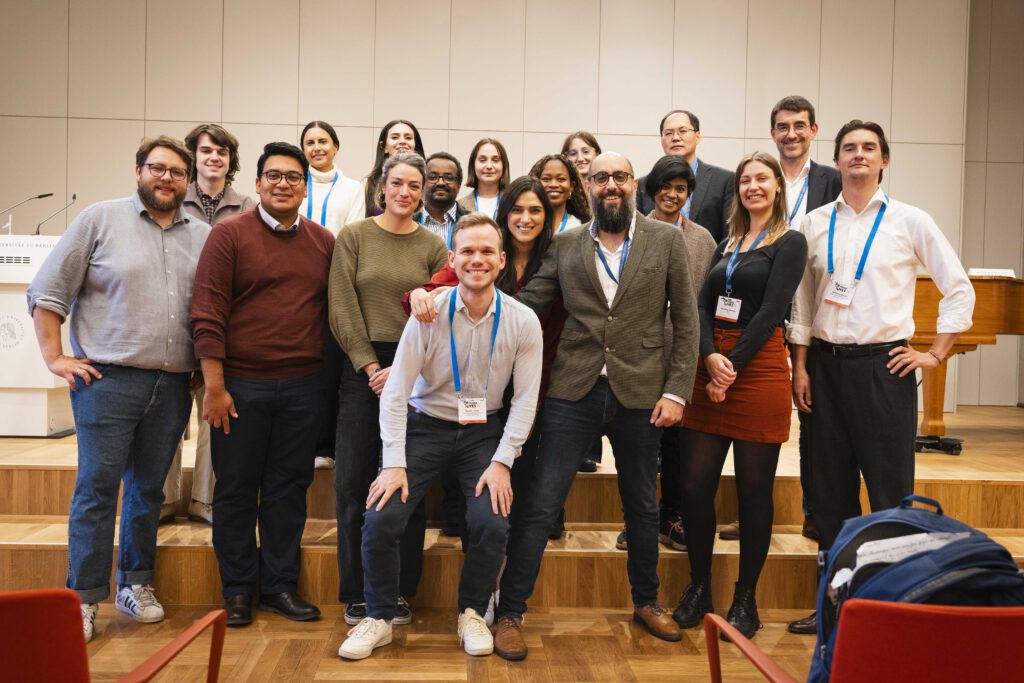
Fragile Lives 2024 was organized by the Zero Hunger Lab of Humboldt University of Berlin in cooperation with the Leibniz Institute for Vegetable and Ornamental Crops (IGZ). It was supported by ISDC – International Security and Development Center and the German Foundation for Peace Research. Individual sessions were supported by the UK Foreign, Commonwealth, and Development Office and the International Food Policy Research Institute.
